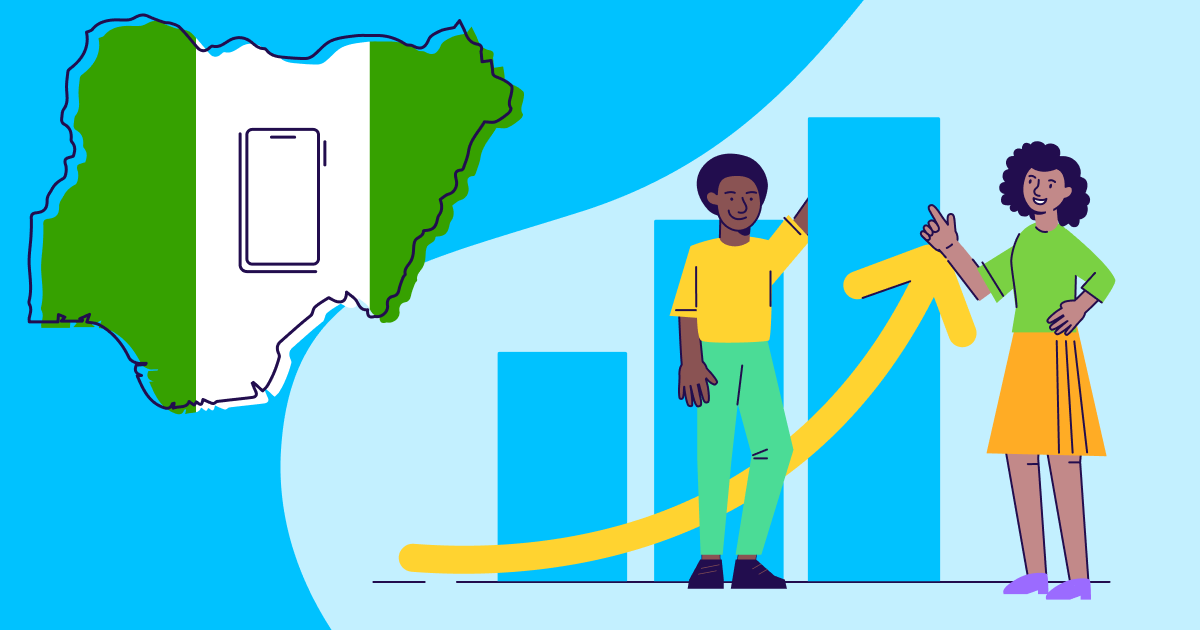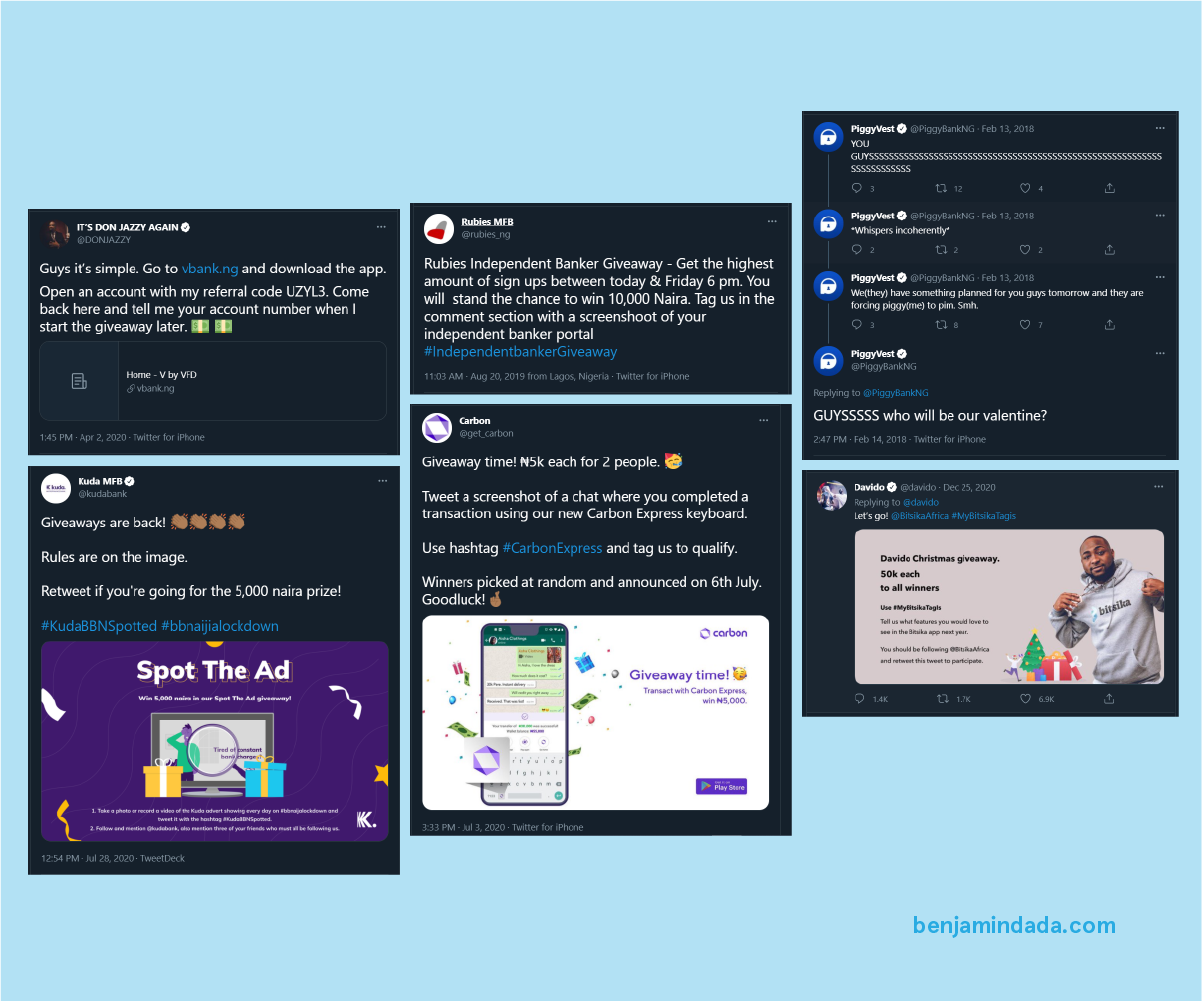How Nigerian tech companies are marketing their apps
Nigeria’s allure to investors and founders borders on both its population and its economy, even though the country has one of the highest levels of poverty in the world.

It is impossible to talk about the African market without mentioning Nigeria, the continent’s most populous nation. Nigeria’s allure to investors and founders borders on both its population and its economy, even though the country has one of the highest levels of poverty in the world.
According to the theory on Diffusion of Innovation, Nigeria is still in the early stage of smartphone adoption. By 2025, smartphone penetration is expected to eclipse 60%, thereby moving the country into a more mature, later stage. As more smartphones fill the market, more mobile apps will be in distribution.
This forecasted growth represents a huge opportunity for mobile app marketers to acquire new users and deepen the existing footprint of their applications.
The country’s digital revolution is led by a very young population with a median age of 18.1 years. The apparent effect of this teenager-dominated population is a lack of immediate buying power. However, as the young population ages, upward economic mobility increases due to skill acquisition and growing professional experience. Consequently, companies must approach customer acquisition with the long-term view to provide value for their “future customers”.
Marketing is one way brands connect with their audience. Broadly speaking, marketing can be broken down into organic and paid. While organic marketing seems to be preferred, startups are aware of their need to boost reach with paid efforts.
In learning about the marketing tactics used for acquisition on mobile, I spoke to leading growth marketers in Nigeria. The top acquisition strategies used by Nigerian marketers are: Organic marketing, Influencer marketing, Giveaway and Paid advertising.

Organic Marketing
The definition of organic marketing can seem both elusive and intuitive. It refers to anything you do to attract customers over time while not having to pay directly for a boost. So, it includes efforts like writing blog posts, case studies, tweeting or making facebook updates, and getting user-generated content like reviews.
Providing helpful content to potential users is a great way to help them discover your product or what you are advising.
One global company famous for its organic marketing is Hubspot---whose blog attracts 6 million visitors every month (it was 5 million in 2018).
In Nigeria, Risevest, a fast-growing wealth-tech startup, runs a blog dedicated to providing stock market news and investment tips.
Perhaps, more ingenious is how companies are using user reviews to drive social proof. According to one growth marketer, strategically positioning the “rating pop-up” after successful completion of actions by the user has improved the number of reviews his organisation gets on Playstore.
Similarly, in-playstore optimizations are also crucial for driving downloads. According to a product marketer at one of the country’s leading Fintech companies, they test new copies to see if they’d rank for specific keywords. He said, “We run experiments with our copy on Google PlayStore because Apple doesn’t let you change copy unless you are pushing an update. Once we notice a favorable response to the copy, we push it with the next app update.”
Influencer Marketing
Many Nigerian startups and businesses are leveraging the power of influencer marketing to push their app awareness and adoption.
For example, V by VFD, a popular Nigerian digital bank, partnered with legendary musician and producer Don Jazzy to market their mobile application. Branding the app around a familiar name helped them generate a lot of initial traction, that is, gain acquisition. The android app has over 100,000 installs.
Kuda, another leading digital bank, signed on ex-Big Brother Nigeria (BBN) housemate and mega-influencer, Erica Nlewedim as a Brand Ambassador. The Kuda Microfinance Bank android app has over 1 million installs.
Similarly, BitSika, a Ghanaian crypto fintech with significant users in Nigeria, turned heads when it partnered with Davido, one of the continent’s biggest celebrities and most followed Nigerian on Twitter. According to Atsu Davoh, CEO of BitSika, the announcement day alone brought over 20,000 new users to their mobile app. The app currently has over 50,000 installs on Google Playstore.
Giveaways
This is a rather simple contest marketing strategy in use by many brands in Nigeria.

A typical giveaway involves getting people to post their in-app username, cashtag, or account number to qualify for a win. Those conditions would require a giveaway participant to sign-up or create an account on the platform.
Local digital banks and other consumer fintech platforms have employed giveaways to drive consumer activity repeatedly.
On the surface, it has appeared successful, but there is still a lot of skepticism around retention and added customer value.
Paid Advertising
There is still a lot of room for growth in paid advertising for Nigerian startups.
According to Bukayo Ewuoso, Key Account Manager West & Central Africa, Eskimi DSP, ad budgets for startups can range anywhere from ₦50,000 (~$125) to ₦750,000 (~$1870) per week, depending on the size of the company and its marketing goals.
Statista predicts that the country’s digital advertising market will hit $270m in 2021. That number is a far cry from South Africa’s predicted size of $862m.
Google and Facebook are still the most popular platforms for startups running mobile download ads. One growth marketer remarked that they found that Facebook ads were more efficient for consumer-tech while Google ads fared better at converting for B2B SaaS products.
Eskimi DSP where Bukayo works is another programmatic ad service popular with Nigerian startups. It allows startups to target customers in many unique ways, including telco marketing and monthly data consumption.
Campaign measurement in Nigeria
Marketing can not be deemed successful until it is measured. I define a marketing campaign as any “projectized” marketing effort. There is a scope (which is the marketing goal), timeline, and cost associated with it.
Mobile marketing in Nigeria is still relatively nascent, and one largely unexplored aspect is attribution and measurement. One of our marketing sources noted a knowledge gap when it comes to setting up mobile attribution. “A lot of people only know how to run ads; they can’t do attribution and tracking,” he said.
Bukayo also notes many startups would benefit from measuring installs and other in-app activities. This data analytics can then be used to optimize marketing campaigns both for user acquisition and retargeting.
With my blog, one challenge I have with measuring our attribution is figuring out the many touchpoints a visitor encountered before eventually taking action (like visiting the site or reading a story). For mobile apps, that customer journey can be better modeled with marketing attribution software.
Bukayo mentioned that he recommends AppsFlyer to clients as one of the best attribution tools for marketers, helping them to better understand their customer journey and providing insight into in-app activities.
There is significant room for growth in advertising for Nigeria startups, especially paid advertising. As startups channel more resources into their marketing campaigns, being able to measure the impact of their campaigns and optimize them will be essential.
This article originally appeared on the Appsflyer blog on 19/05/2021
Link: https://www.appsflyer.com/blog/nigerian-companies-grow-mobile-ua/






